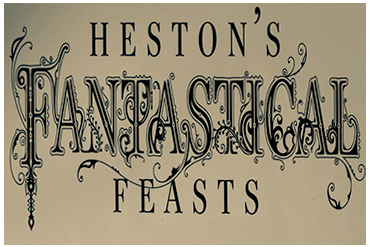
Culinary Wizard: Heston Blumenthal
- Food Science
The news that Heston Blumenthal is bringing his Fat Duck Restaurant to Melbourne has stirred the imagination of many. For me this culinary wizard has turned the high end restaurant market on its head and set new culinary performance and entertainment standards for gastronomes and serious foodies. To be the best, to be acclaimed by diners, food journalists and international food guides, restaurateurs must transcend the fundamentals of well executed, seasonally inspired menus and ethical supply chains. They must offer a unique value based proposition, no gimmickry and hype, and put on a stellar performance every service. Celebrity chef Heston Blumenthal, of the Michelin Guide three – star restaurant, The Fat Duck in Bray Berkshire, does just that and then more.
With eight cookbooks to his name and a love of the fantastical and theatrical, Blumenthal has developed a reputation as being a culinary scientist and is acknowledged by some as being instrumental in popularising molecular cuisine. Perhaps one of his most creative periods is encapsulated in his 2010 cookbook Heston’s Fantastical Feasts.

Using historical periods for inspiration, six feasts were created which pushed the boundaries of art, science and food presentation to create a new level of contemporary culinary entertainment. Fantastical edible dishes of extraordinary architectural, culinary and scientific perfection have marked the return of the 14th century entremets – edible and inedible centrepieces. Highly symbolic, designed to surprise, delight and challenge the diner, Heston’s feasts set a new culinary benchmark that many aspire to and that few can achieve.
Heston’s mode of operation has revived and contemporised some distinctive elements of early culinary history. The use of bizarre ingredients – wild boars head, leeches and chicken testicles- the alchemist’s philosophy and use of scientific methods to extract and concentrate flavours and the re-creation of edible entremets are essential components of the Heston dining experience. Will he prepare an ancient restorative bouillon, as homage to the original meaning of restaurant, or will he temp diners with edible liquorice and white chocolate dice served on sea foam as they dine in the Crown Casino. We will have to wait until February 2015 to find out, but whatever the menu it will set new standards for the restaurant industry and diners alike. Restaurants, originally an 18th century Parisian refuge for the frail seeking restorative broths, are constantly evolving and for Heston restaurant diners, they are a fantastical culinary oasis.
